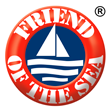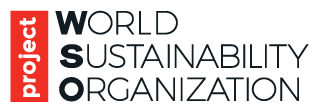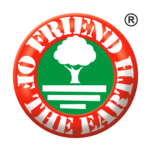Calamari e seppie
Insung Corporation
Species scientific name: Loligo gahi
FAO area: 41
Fishing method: Midwater trawl
Republic of Korea – Midwater trawl – Loligo gahi – FAO 41 (Atlantic, Southwest)
Fishery client: IN SUNG CORPORATION.
Fishing area: FAO 41, Southwest Atlantic.
Fishing vessels: The Company has a fleet of 11 vessels.
Vessel audited on site as fleet sample: IMO 7042538.
Fishing method: Midwater trawl.
Certified species: Scientific name: Loligo gahi;
Common name: Loligo.
Management summary
The Ministry of Maritime Affairs and Fisheries (MOMAF) is the executive agency of the Republic of Korea responsible for planning and implementing fisheries policy and general fisheries management. Korean fishing fleets operating far from their national waters must also comply with international law. By Korean law, vessels must have a Vessel Monitoring System (VMS). Every 24 hours, the Fisheries Monitoring System makes an automatic report. Measures to protect fish stock, such as limited licenses, restrictions on size and other dimensions of each fishing unit, size selectivity measures, and spatial and seasonal closures are in place.
Stock status summary
No current stock status data was found for Loligo gahi. According to License advice 2017, in the last 10 years, the fishing mortality rate is lower than the Maximum Sustainable Yield.
Bycatch / discards
Fishing operation and nets are designed not to discard. Speed fishing gets very low and records are in place. The level of disposal does not exceed 8%. The logbook has information on bycatch species, weight, and units. Accidental catches are not included on the IUCN Red list.
Habitat Impact
The fleet does not operate in Marine Protected Areas. The fishery occurs only in regulated areas 200 miles from the shore. There is no contact with the seabed because of trawls dimensions.
Social Accountability performance
The fleet complies with the human rights and regulations of the Republic of Korea, Philippines, Indonesia, and Myanmar.
Conclusion with reasons for approval
Despite of minor non-conformities (failures in procedures and documents), the fleet complied with Friend of the Sea requirements. The procedure of non-conformity was closed when the company sent documents showing that the irregularities pointed out by the auditor were being corrected.
MCB Seafoods
Species scientific names: Loligo vulgaris, Sepia officinalis
FAO area: 27
Fishing method: Hand line
United Kingdom – Hand line – Loligo vulgaris, Sepia officinalis – FAO 27 (Atlantic, Northeast)
Fishery client: MCB SEAFOODS LTD.
Website: www.mcbseafoods.com
Fishing area: FAO 27, Subarea 7.d, Eastern English Channel.
Fishing vessels: Under 10 meter artisanal fleet.
Vessels audited on site as fleet samples: NN70; SM300; SM700; NN114; LI575; LI579; H5.
Fishing method: Hand line.
Certified species:Scientific name / Common name
Loligo vulgaris / Squid;
Sepia officinalis / Cuttlefish.
Management summary
The Inshore Fisheries Conservation Authority (IFCA) and the Department of Environment Food and Rural Affairs (DEFRA) inspect and manage the fisheries in the Eastern English Channel according to European law. The company fleet is operating with a quota approach according to the laws.
Bycatch / discards
Vessels are under 10 mt and they are not obliged to the use of logbook. Nevertheless, most of them are filling a traceability paper. The fleet usually uses a mesh size of 11.2 cm, which is greater than the minimum required, to reduce accidental catch of undersized fish. Accidental catches are released alive at sea.
Habitat Impact
The fleet does not operate in Marine Protected Areas, nor in reproduction grounds, which are also protected by law. The fishing method is not affecting the seabed. According to the auditor, a quota system is in place for the fisheries.
Social Accountability performance
The fleet complies with the human rights and national regulations.
Conclusion with reasons for approval
The fleet complies with Friend of the Sea requirements. Even so, the necessity of the entire fleet fill the traceability paper, as well as the importance of reinforcing measures to minimize the loss of fishing nets have been reported and will be inspected at the next audit.
Minh Dang Company LTD
Species scientific names: Uroteuthis chinensis, Loligo edulis, Sepiella japonica, Sepiella pharaonis
FAO area: 71
Fishing method: Trawler
Vietnam – Trawler – Uroteuthis chinensis, Loligo edulis, Sepiella japonica, Sepiella pharaonis – FAO 71 (Pacific, Western Central)
Fishery client: MINH DANG CO. LTD, Soc Trang province, Vietnam.
Fishing area: FAO 71, offshore region in Southeastern areas, Vietnam.
Fishing vessels: Kien Giang fleet.
Vessels audited on site as Kien Giang fleet samples: KG 61184 – TS; KG 61243 TS; KG 61189 TS; KG 61587 TS; KG 61728 TS.
Fishing method: Trawler.
Certified species:Scientific name / Common name
Uroteuthis chinensis / Mitre squid;
Loligo edulis / Swordtip squid;
Sepiella japônica / Japanese spineless cuttlefish;
Sepiella pharaonic / Pharaoh cuttlefish.
Management summary
The Ministry of Agriculture and Rural Development (MARD) is the government agency that manages fisheries in Vietnam. The audited species can be caught in Vietnam in compliance with Circle No. 02/2006/TT -BTS issued by MARD and with the Official announcement No. 3397/TS – KHCN of the National Agro-Forestry-Fisheries Quality Assurance Department (NAFIQAD). There is a minimum caught length to be respected.
Stock status summary
Based on the available data, the Food and Agriculture Organization of the United Nations (FAO) and the Vietnamese Ministry concluded on stock status and appropriate fishing mortality. According to them, squid and cuttlefish were not overexploited / overfished.
Bycatch / discards
According to the logbook, there is no occurrence of discards because of the mesh size (> 40 mm), which is bigger than the minimum size of the fish to be retained.
Habitat Impact
There is no fishing in Marine Protected Areas. The catching area established by the Sub-Department of Capture Fisheries and Resource Protection of Kien Giang province, which is offshore region in the Southeastern areas of Vietnam (FAO 71) is respected. There are no records of captured live animals. The fishing method has no effect on the seabed.
Social Accountability performance
The fleet complies with the human rights and Vietnamese regulations.
Conclusion with reasons for approval
The fleet complies with Friend of the Sea requirements, without any major non-conformities.
RAI Seafoods
Species scientific name: Loligo chinensis
FAO area: 57
Fishing method: Hand line
Indonesia – Hand line – Loligo chinensis – FAO 57 (Indian Ocean, Eastern)
Fishery client: PT TOBA SURIMI INDUSTRIES, RAI SEAFOOD.
Website: www.tobasurimi.com
Fishing area: FAO 57, FMA 571 – Malacca Strait and Andaman Sea.
Fishing vessels: The Company has a fleet of 14 vessels.
Vessels audited on site as fleet samples: 0238; 0245; 0235.
Fishing method: Hand line.
Certified species: Scientific name: Loligo chinensis;
Common name: Common Chinese squid.
Management summary
The Ministry of Marine Affairs and Fisheries (MMAF) is responsible for the management of the fisheries sector in Indonesia. The mission of the MMAF is to apply principles of responsible, competitive and sustainable management of marine and fisheries resources. The audited species can be caught in compliance with the Document nº QMS – 0001, which specifies the allowed species and catching areas.
Stock status summary
The Minister Decree issued in 2011 (KEP 45/MEN/2011) about the status and potential estimates of fish resources in each Fisheries Management Areas (FMAs), which was intended to be used as a basis for managing fisheries resources, has considered the L. chinensis as not overexploited and overfished in the Malacca strait or FMA 571.
Bycatch / discards
There is no accidental catches. According to the auditor, the only species that is caught by the fleet is the L. chinensis.
Habitat Impact
The fishery occurs only in regulated areas (5‒10 miles from the shore) and complies with the regulation of Marine Protected Areas. The fishing gear used is a traditional hand line that does not affect the seabed.
Social Accountability performance
The fleet complies with the human rights and Indonesian labour regulations.
Conclusion with reasons for approval
Despite of major and minor non-conformities (failures related to the type of gas used in the air conditioning of the vessels, traceability procedures, among others), the fleet complied with Friend of the Sea requirements. The procedure of non-conformity was closed when the company sent documents showing that the irregularities pointed out by the auditor were being corrected.
Seatec Chile (E.I.R.L.)
Species scientific name: Dosidicus gigas
FAO area: 87
Fishing method: Hand line
Chile – Hand line – Dosidicus gigas – FAO 87 (Pacific, Southeast)
Fishery client: SEATEC E.I.R.L.
Website: www.seatec-chile.cl/seatec
Fishing area: FAO 87, Southeast Pacific.
Fishing vessels: The Company has a fleet of 61 vessels.
Vessels audited on site as fleet samples: 2630; 2083; 2627; 2638; 2240; 2422; 2685.
Fishing method: Hand line.
Certified species: Scientific name: Dosidicus gigas;
Common name: Calamar gigante / Giant squid.
Management summary
The Chilean National Fish Service (SERNAPESCA) is responsible for the monitoring, control, surveillance and enforcement of responsible fishing. All fishing landings are audited by an external entity, which certifies the amounts received. According to the Decrees #960 of 2015 and the #1176 of 2015, there is an annual catch quota to be respected, with a maximum of 200,000 MT (78% for the artisanal catch).
Stock status summary
According to FAO publication Nº 457 of 2005, the stock of D. gigas is not overexploited. In addition, the Fisheries Support Institute (IFOC) conducted a study on fisheries and ecosystem management, recommending the fishing of the audited species.
Bycatch / discards
The fishing procedure is artisanal and selective, with no secondary catch. The equipment used for the process does not allow the capture of more species at each opportunity. Still, the company has established a procedure to register bycatch for each fishing trip.
Habitat Impact
The fishing procedure is artisanal. Thus, the distance from the shore is less than 14 miles, outside of Marine Protected Areas. In addition, the depth at which it is made ensures that the seabed is not being affected.
Social Accountability performance
The fleet complies with the human rights and Chilean labour regulations.
Conclusion with reasons for approval
Despite of major and minor non-conformities (concerns related to preventive programs for bycatches, traceability, among others), the fleet complied with Friend of the Sea requirements. The procedure of non-conformity was closed when the company sent documents showing that the irregularities pointed out by the auditor were being corrected.



